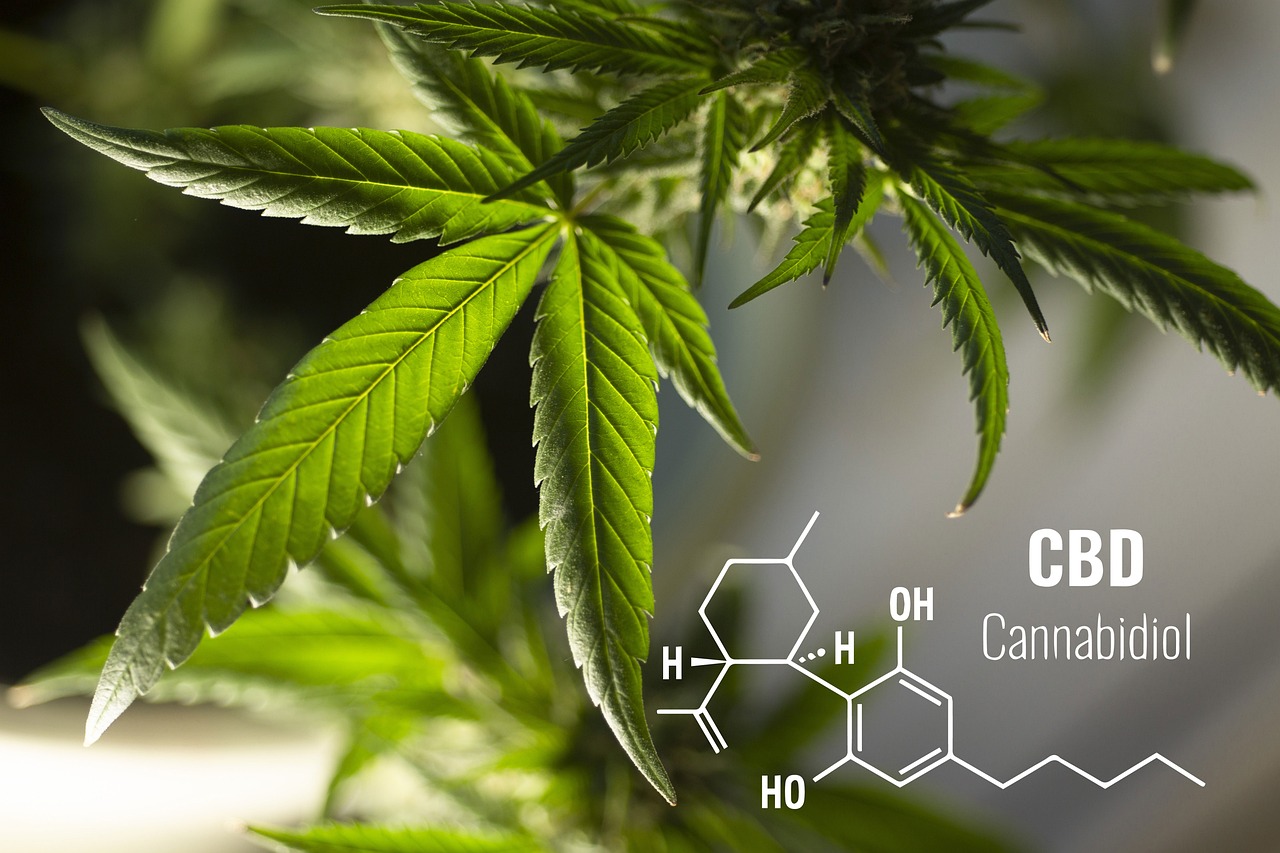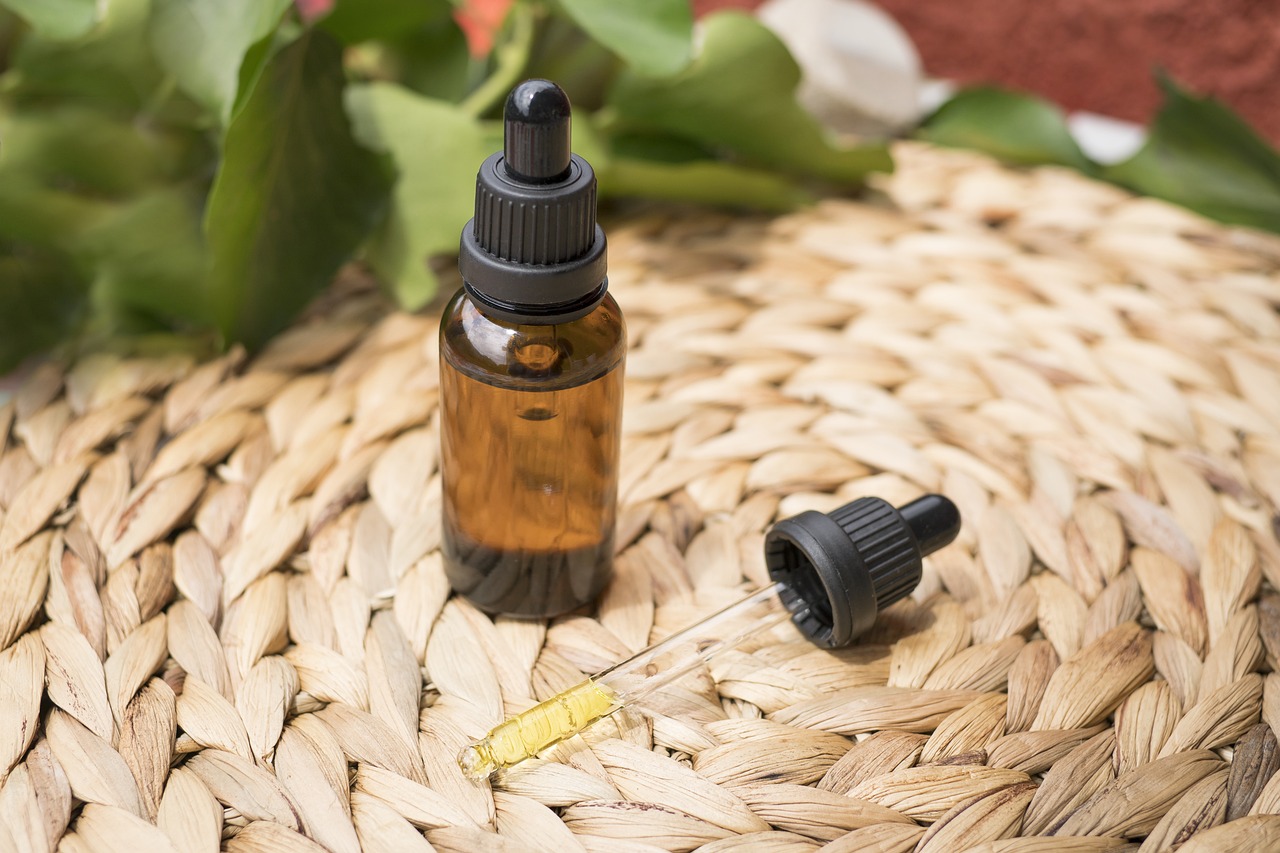Welcome to CBD for Beginners!
Unless you’ve been hiding under a rock, you’ve probably heard about CBD and its many potential benefits. But what exactly is it? How can it help you? In this beginner’s guide to CBD, we’ll cover everything you need to know, from what CBD is, how it works, and all the different ways you can use it. By the end of this guide, you’ll be equipped with the knowledge you need to make an informed decision about whether it’s right for you. So, let’s get started!
CBD is short for Cannabidiol, one of over 100 cannabinoids in the cannabis plant. CBD can be extracted from both marijuana (cannabis with high levels of THC) and hemp (cannabis with trace amounts of CBD). THC and CBD are nearly identical in molecular structure, but CBD is not an “intoxicant,” whereas THC is the cannabinoid that makes you feel high.
While THC is still federally illegal, in 2018, the Farm Bill legalized hemp cultivation and the production and sale of CBD extracts. Before the Farm Bill, the US Drug Enforcement Agency had classified CBD as a Schedule I Narcotic “with no medical benefit,” a legal status still held by THC.

CBD works by interacting with the body’s endocannabinoid system (ECS). The ECS is a network of receptors and chemicals that helps to regulate various functions like sleep, appetite, pain, and inflammation. Endocannabinoid receptors were first found in the brain and nerves but have since been found throughout the entire body. As a result, they are versatile molecules that play an essential role in maintaining overall wellness.
While your body creates its own endocannabinoid to support the ECS, you can become deficient in these molecules. CBD is thought to help supplement your body’s natural supply of endocannabinoids, supporting the ECS and helping to maintain homeostasis (a state of balance). CBD is a cannabinoid that works in this way. However, it does not attach to receptors in our endocannabinoid system as other cannabinoids do. By blocking their breakdown, CBD helps our body’s natural production of endocannabinoids. Consequently, we can use more of what our body already produces.
CBD also changes the shape of the CB1, which prevents THC from binding to it. This explains why cultivars with a balanced cannabinoid profile are less likely to cause anxiety and paranoia. In addition, CBD prevents THC from overstimulating the CB1 receptors.
Now that we know what CBD is let’s talk about the difference between hemp oil and CBD oil. Both are oils extracted from cannabis plants but are not the same.
Hemp oil is made by pressing hemp seeds containing very little CBD. It has a nutty flavor and is often used in food and skincare products. CBD oil is made by extracting CBD from the cannabis plant, then diluting it with a carrier oil like coconut or hemp seed oil. It has a grassy flavor and is often used for its potential health benefits.

CBD advocates and manufacturers all tout that CBD treats numerous health issues. As its popularity has grown, researchers have begun to study it more. However, there’s still not a lot of clinical research to back the claims. Some of the purported health benefits of CBD include:
Whew! That’s a long list. But some of these health benefits merit a closer look.
A 2015 review published in the journal Neurotherapeutics established that CBD has great potential to reduce anxiety levels in animals. In many cases, low doses of CBD showed positive effects on anxiety symptoms, while larger doses had almost no effect.
The way CBD acts in the brain is a possible explanation for the difference. In small amounts, CBD could bind to the same receptor as other molecules that typically “turn up” signaling activity. However, too much binding at this receptor site at high levels might have the opposite effect.
A 2015 review published in the Journal of Substance Abuse suggests that CBD oil could benefit people with substance abuse disorders. The review included findings from 14 studies in which CBD showed potential for treating patients suffering from opioid, cocaine, or psychostimulant-related use disorders.
The effects of CBD vary depending on the substance. For instance, when CBD is not mixed with THC, it does not decrease withdrawal symptoms related to opioids. On the other hand, it has been shown to reduce drug-seeking behaviors in cocaine and methamphetamine users. Some professionals believe that CBD could also help treat cannabis and nicotine dependence, but more research is needed.
A 2017 study found that CBD oil may help protect against heart disease by decreasing blood pressure. In the study, nine healthy men took either 600 mg of CBD or a placebo. The men who took CBD had lower blood pressure before and after exposure to stressors like exercise or cold temperatures.
In addition to measuring the amount of blood remaining in the heart after a heartbeat (stroke volume), researchers also looked at how CBD affected men’s hearts. They found that those who took CBD had lower stroke volumes than those in the placebo group, meaning their hearts were pumping more efficiently.
The study suggested that CBD oil could be a complementary therapy for people with high blood pressure affected by stress and anxiety. However, there is no evidence that it can treat high blood pressure on its own or prevent it in people who are at risk. In addition, while stress can complicate high blood pressure, it does not cause it.
Many people advocate that CBD oil can help you sleep better, but the research is inconclusive. Anecdotally, anxiety is a cause of insomnia, and CBD may treat anxiety, so it seems like there’s potential here. CBD’s effectiveness as a sleep aid may merit further investigation.
The FDA approved a CBD oral solution called Epidiolex in June 2018. This medication treats two rare forms of epilepsy that occur in children under 2: Dravet syndrome and Lennox-Gastaut syndrome. These conditions are caused by rare genetic disorders and can lead to lifelong seizures starting in the first year of life.
CBD is typically very well tolerated. However, some studies have reported a wide range of side effects. Their severity varies depending on the person, the type of CBD being used, and the dosage. Typically, very high doses are more likely to cause side effects. Some of the side effects people report after using CBD oil are:
Be advised that THC is present in some CBD oils, even at low levels. Therefore, do not operate a vehicle or machinery when first trying CBD oil or switching to a new brand.
This question may be a bit misleading. CBD is a specific compound with a specific molecular structure. So CBD is just CBD, all day, every day. However, how it is extracted from the plant and the resulting preparation may include other cannabinoids, and that’s where the differences are.
Full Spectrum CBD includes everything in the plant: cannabinoids, terpenes, and flavonoids. This type of preparation is preferred by many due to the “entourage effect,” where all the cannabinoids, terpenes, and flavonoids work together to improve their efficacy.
Full spectrum CBD derived from hemp can only have up to 0.3% THC. This is the type available over the counter or online. However, marijuana derived CBD will have varying concentrations of THC, from trace amounts to high levels depending on the product. Marijuana derived CBD is only available at licensed dispensaries. It’s important to note that both full spectrum CBD from hemp and CBD from marijuana poses a positive drug test risk.
If you’re worried about THC in your system for legal, medical, or personal reasons, broad spectrum CBD might be a better choice. Broad spectrum CBD contains all the cannabinoids, terpenes and flavonoids except for THC, so the entourage effect still comes into play.
Because it is highly refined, CBD distillate is one of the most potent types of concentrate available; however, it does not have as many benefits as Broad Spectrum or Full Spectrum since other terpenes and cannabinoids are missing from the oil. Normally, this product contains more than 80% CBD with minimal traces of THC.
CBD distillate is a viscous golden liquid extracted from the hemp plant. It is used to produce edibles, topicals, and vape pens.
CBD Isolate is Cannabidiol in its most isolated form: with no other cannabinoids, terpenes or flavonoids. For this reason, CBD isolate is considered by many experts to be less effective than CBD oil and other forms of Cannabidiol. Consumers can find it as a pure powder or crystal in various stores that sell CBD products.
There are many different ways to consume CBD, and the method always affects the experience. For example, smoking a CBD-rich flower will produce rapid onset and the entourage effect. On the other hand, taking a CBD isolate gel cap will result in delayed onset and no entourage effect.
Finding the ideal way to use CBD may take some trial and error. People like different things have different needs and process cannabinoids differently.
With edibles and capsules, the cannabinoids pass through the digestive tract and are metabolized by the liver. The effects can usually take an hour to onset. The cannabinoids in edibles may interact with receptors in the gut, which can intensify their effects on conditions like inflammatory bowel disease. Edibles and capsules are long-lasting, making them ideal for managing chronic conditions.
Tips for first-time users:
Sublinguals include CBD tinctures, strips, and sprays and are made to be dosed under the tongue, where they’re directly absorbed into blood vessels. The effects usually start after 15-30 minutes.
Tips for first-time users:
When smoking or vaping, cannabinoids are absorbed by the alveoli in the lungs and passed directly into the bloodstream. This method provides the fastest onset to effect. The main concern with smoking is that it’s bad for your lungs, although evidence suggests no link between lung cancer and COPD (Chronic Obstructive Pulmonary Disease). However, any smoke inhalation does come with health risks (e.g., chronic coughs, congestion, asthma).
Tips for first-time users:
CBD topicals, rubs and patches can be beneficial for treating skin or joint issues. They can also be used for general relief and relaxation. Transdermal CBD products are designed to be applied topically and absorbed through the skin, entering the bloodstream directly and bypassing the digestive system.
Tips for first-time users:
CBD Bath Bombs are a great way to relax and soothe muscle aches after a long day. In addition, they can be used to treat various skin conditions and provide relief from stress and anxiety.
Tips for first-time users:
There are many different ways to use CBD, and the method always affects the experience. For example, smoking a CBD rich flower will result in rapid onset and provide the entourage effect. On the other hand, taking a CBD isolate gel cap will result in delayed onset and no entourage effect.
Because dosage is an issue, the best CBD products for beginners are the ones that eliminate dosing measured by the user.
Beyond those obvious go-to’s for beginners, you may want to consider a few things in making your decision, such as:
This is all about finding your sweet spot, but with a little effort, you’ll get there quickly!
It depends. There is a sharp distinction between the safety of hemp derived CBD products and marijuana derived CBD. Because Hemp derived CBD is technically a supplement, it is not regulated by the FDA. As a result, many brands are not tested for purity, and some may contain pesticides or other contaminants. If your state has legalized medical or recreational cannabis, always buy marijuana derived CBD from a licensed retailer to ensure it’s been tested for purity and is free of contaminants.
Beyond that, CBD is typically safe and well tolerated. The important thing is that you know exactly what you’re taking.
No, but you may experience some of the side effects listed earlier.
The general rule is that hemp derived CBD is legal to possess and consume everywhere except Idaho, Iowa, and South Dakota. Marijuana derived CBD is only legal in states with medical or recreational cannabis laws.
Use of cannabis derived CBD products with formulations like 1:1 or even 18:1 CBD to THC may result in a positive drug test. Full spectrum CBD products may also cause users to test positive for THC.
Embarc invites you to begin your CBD journey with us. We carry an amazing line of CBD products and have a wealth of knowledge to share with you. Our expert staff is always happy to help you find the right product for your needs. Best of all, every product at Embarc is lab tested for purity, so you’ll always know your CBD is safe and exactly what’s in it!
Drop by anytime to embark on your CBD journey, or visit us online for fast, discrete delivery!
